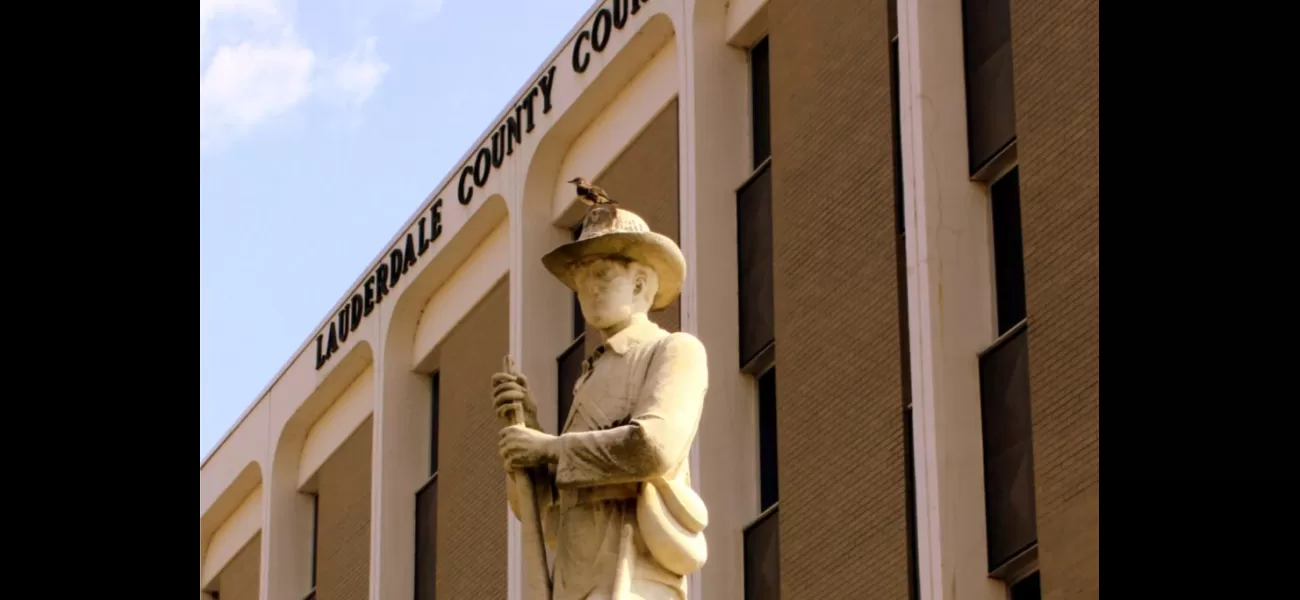Alabama's controversial monument law amendment has been delayed due to protests.
The Alabama Memorial Preservation Act, introduced in 2015, has been accused of safeguarding Confederate monuments.
February 23rd 2024.

A recent bill, SB51, has caused quite a stir in Alabama. This bill, proposed by Senator Gerald Allen, aimed to increase the already hefty $25,000 fine stated in the Alabama Memorial Preservation Act. The act, which was first introduced in 2015, prohibits the relocation or removal of monuments that have been standing for 40 or more years. Essentially, it aims to protect historically significant buildings and monuments from being altered or disturbed in any way.
However, on February 20th, the bill hit a roadblock when members of the community expressed their strong opposition to it. Many argued that the act was primarily created to protect monuments that glorify the Confederacy. In fact, in 2019, Judge Michael Graffeo of Jefferson County ruled that the act violated the constitutional rights of the city's citizens, particularly due to the history of Birmingham, which has a predominantly African American population.
According to Judge Graffeo, a city should have the right to express its own views and choose which monuments it wants to honor. And in the case of Birmingham, it was clear that the majority of its citizens were against the Confederate monument. However, this ruling did not deter Attorney General Steve Marshall from citing the act in 2020, after a Confederate monument was defaced by protesters following the murder of George Floyd. Marshall made it clear that he would pursue legal action against the city if they proceeded with removing the monument.
Despite this threat, Birmingham Mayor Randall Woodfin kept his promise and had the monument removed. In an interview, he explained that it was important to move forward and not let revisionist history dictate the city's future. However, on February 20th, it was revealed that Senator Allen's bill did not receive enough votes to advance out of the committee in its current form. Senator Chris Elliott, the chair of the Senate County and Municipal Government Committee, postponed another vote on the bill.
Currently, the act allows for a waiver to be filed by the local government. If no response is given within 90 days, the waiver is automatically granted. However, Senator Allen's bill wants to change this by increasing the fine to $5,000 a day and denying the waiver request if not responded to within the 90-day time frame. This has sparked concerns among local residents, including attorney David Gespass, who believes that the committee should be required to explain any denials of waiver requests.
Camille Bennett, the founder and executive director of Project Say Something, was the first to voice her concerns about the bill during the public comments section. She expressed doubt in Senator Allen's claim that the bill also protects other monuments, such as those honoring Dr. Martin Luther King Jr. Bennett has faced backlash and even death threats for her stance on the Confederate monument, but she stands firm in her belief that it should be removed. She argues that comparing it to monuments honoring Dr. King, who won a Nobel Peace Prize, is a false equivalency.
Many members of the Senate County and Municipal Government Committee, including Senator Linda Coleman-Madison, also spoke out against the bill. Senator Coleman-Madison believes that if the bill is going to exist, then history should be told in its entirety, including the ugly parts. She argues that the Civil War was a war against the United States and that we should not uphold monuments that glorify it. Ultimately, the fate of the bill remains uncertain, but it has sparked important conversations about the role of monuments in our society and the need for a complete and accurate telling of history.
However, on February 20th, the bill hit a roadblock when members of the community expressed their strong opposition to it. Many argued that the act was primarily created to protect monuments that glorify the Confederacy. In fact, in 2019, Judge Michael Graffeo of Jefferson County ruled that the act violated the constitutional rights of the city's citizens, particularly due to the history of Birmingham, which has a predominantly African American population.
According to Judge Graffeo, a city should have the right to express its own views and choose which monuments it wants to honor. And in the case of Birmingham, it was clear that the majority of its citizens were against the Confederate monument. However, this ruling did not deter Attorney General Steve Marshall from citing the act in 2020, after a Confederate monument was defaced by protesters following the murder of George Floyd. Marshall made it clear that he would pursue legal action against the city if they proceeded with removing the monument.
Despite this threat, Birmingham Mayor Randall Woodfin kept his promise and had the monument removed. In an interview, he explained that it was important to move forward and not let revisionist history dictate the city's future. However, on February 20th, it was revealed that Senator Allen's bill did not receive enough votes to advance out of the committee in its current form. Senator Chris Elliott, the chair of the Senate County and Municipal Government Committee, postponed another vote on the bill.
Currently, the act allows for a waiver to be filed by the local government. If no response is given within 90 days, the waiver is automatically granted. However, Senator Allen's bill wants to change this by increasing the fine to $5,000 a day and denying the waiver request if not responded to within the 90-day time frame. This has sparked concerns among local residents, including attorney David Gespass, who believes that the committee should be required to explain any denials of waiver requests.
Camille Bennett, the founder and executive director of Project Say Something, was the first to voice her concerns about the bill during the public comments section. She expressed doubt in Senator Allen's claim that the bill also protects other monuments, such as those honoring Dr. Martin Luther King Jr. Bennett has faced backlash and even death threats for her stance on the Confederate monument, but she stands firm in her belief that it should be removed. She argues that comparing it to monuments honoring Dr. King, who won a Nobel Peace Prize, is a false equivalency.
Many members of the Senate County and Municipal Government Committee, including Senator Linda Coleman-Madison, also spoke out against the bill. Senator Coleman-Madison believes that if the bill is going to exist, then history should be told in its entirety, including the ugly parts. She argues that the Civil War was a war against the United States and that we should not uphold monuments that glorify it. Ultimately, the fate of the bill remains uncertain, but it has sparked important conversations about the role of monuments in our society and the need for a complete and accurate telling of history.
[This article has been trending online recently and has been generated with AI. Your feed is customized.]
[Generative AI is experimental.]
0
0
Submit Comment





